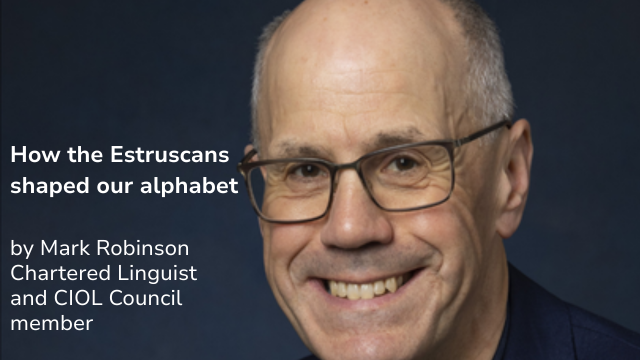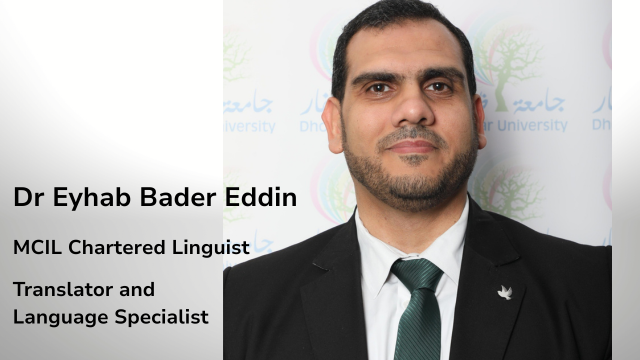-
QUALIFICATIONS
- For Linguists Worldwide
- For UK Public Services
- Preparation
- Policies & Regulation
-
MEMBERSHIP
- Join CIOL
- Professional Membership
- Affiliate Membership
- Chartered Linguist
- Already a member?
- Professional conduct
- Business & Corporate Partners
-
LANGUAGE ASSESSMENTS
- English
- All Other Languages
-
CPD & EVENTS
- Webinars & Events
- CIOL Conferences
- Networks
- CIOL Mentoring
-
NEWS & VOICES
- News & Voices
- CIOL eNews
- CIOL Awards
- The Linguist Magazine
- Jobs & Ads
-
RESOURCES
- For Translators & Interpreters
- For Universities & Students
- Standards & Norms
- CIOL & AI
- All Party Parliamentary Group
- In the UK
- UK Public Services
- Find-a-Linguist
What is Certified Translation?
By Vasiliki Prestidge

If you are a translator who provides certified translation, I am sure you have spent endless hours explaining to your clients what certified translation means, how it is done, what is an Apostille stamp and more. So much so that you are possibly tired and do not want another phone call from a client asking the same thing again and again.
But who is it to blame? The government for not providing a regulatory framework? The professional bodies? The translators themselves who often mis-sell and use trendy words to attract customers? The private individuals who don’t read your guidance? Or is everyone somehow responsible?
This is undoubtedly a grey area in our sector. It becomes even more complicated considering the endless language combinations, the different countries involved and the various authorities receiving certified translations.
Some of the questions I am asked often on daily basis are:
Are you official? Are you Embassy-approved? Do you provide the Apostille? Is it going to be sworn? Is your translation accepted by X authority? How are you going to certify this? What will it say? Do you have a stamp?
So how did we get to this point? And why is, let’s say, a doctor not asked how are they going to do their job?
No matter how many blog posts or articles I’ve written, addressing the very questions clients ask, I find it is not enough. Most of the time, clients don’t know what they want or need, and the receiving authorities only add to the confusion.
This is because the routes to certified translation vary. There is no one-size-fits-all. The answer is “it depends” or “well, what do you need”, “which is the receiving authority and what are their requirements”.
In a free market, each business sets its own processes, and based on experience, one learns what each authority requires, what is the framework, if any, in other countries, and what the needs are, based on the language pair.
But one thing we can all do, is agree, as translators, how we call ourselves. And that simply means, let’s not call ourselves what clients want to hear purely to get the clients. Let’s not add to the misinformation and confusion. You cannot be an Embassy-approved translator, because legally no Embassy in the world has the authorisation to approve translators. They are not translator approving bodies.
You cannot be an official translator. Such a title means nothing in the same way you cannot be an official doctor. You can be a qualified, experienced, doctor specialising in paediatrics. You can be a registered doctor. In the exact same way, you can be a qualified, experienced, registered translator.
On the same basis, you cannot provide sworn translations. You are the sworn translator. A piece of paper cannot take an oath. It’s as simple as that. We, translators, know what words mean and we know the impact we have when using the right words. So let’s use the right words to describe the right services and let’s properly educate our clients, the public, and the policy makers by giving them the appropriate guidelines.
Write blog posts, train your colleagues, produce guides, keep template emails. By all means, do everything you can to make life easier for you as a translator. However, wouldn’t it be so great if everyone was on the same page and used the same vocabulary to describe the same service? Think how much more productive we would all become!
Vasiliki Prestidge BA MA MCIL CL is a member of CIOL Council, a translator, interpreter, transcreator, blogger, consultant and director of Greek to Me Translations Ltd
Read her full Council biography here.
Views expressed on CIOL Voices are those of the writer and may not represent those of the wider membership or CIOL.
Postscript: Ewa Erdmann MCIL CL writes: Polish sworn translators do in fact take an oath during a ceremony at the Ministry of Justice in Poland. Therefore, a translator (in Poland) who has taken this oath can call themselves a sworn translator ("tłumacz przysięgły"). Here's a link to the Polish Society of Sworn and Specialised Translators https://tepis.org.pl/the-polish-society-of-sworn-and-specialized-translators/
Filter by category
More
The Chartered Institute of Linguists (CIOL), Incorporated by Royal Charter, Registered in England and Wales Number RC 000808 and the IoL Educational Trust (IoLET), trading as CIOL Qualifications, Company limited by Guarantee, Registered in England and Wales Number 04297497 and Registered Charity Number 1090263. CIOL is a not-for-profit organisation.








